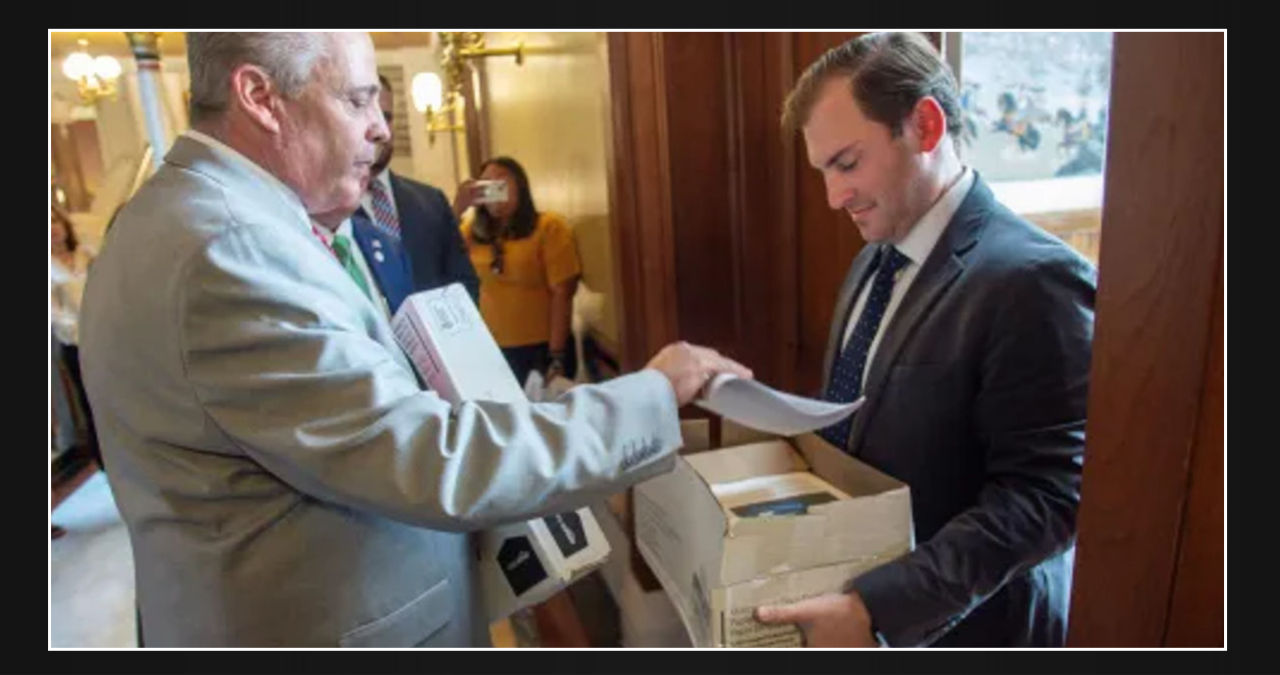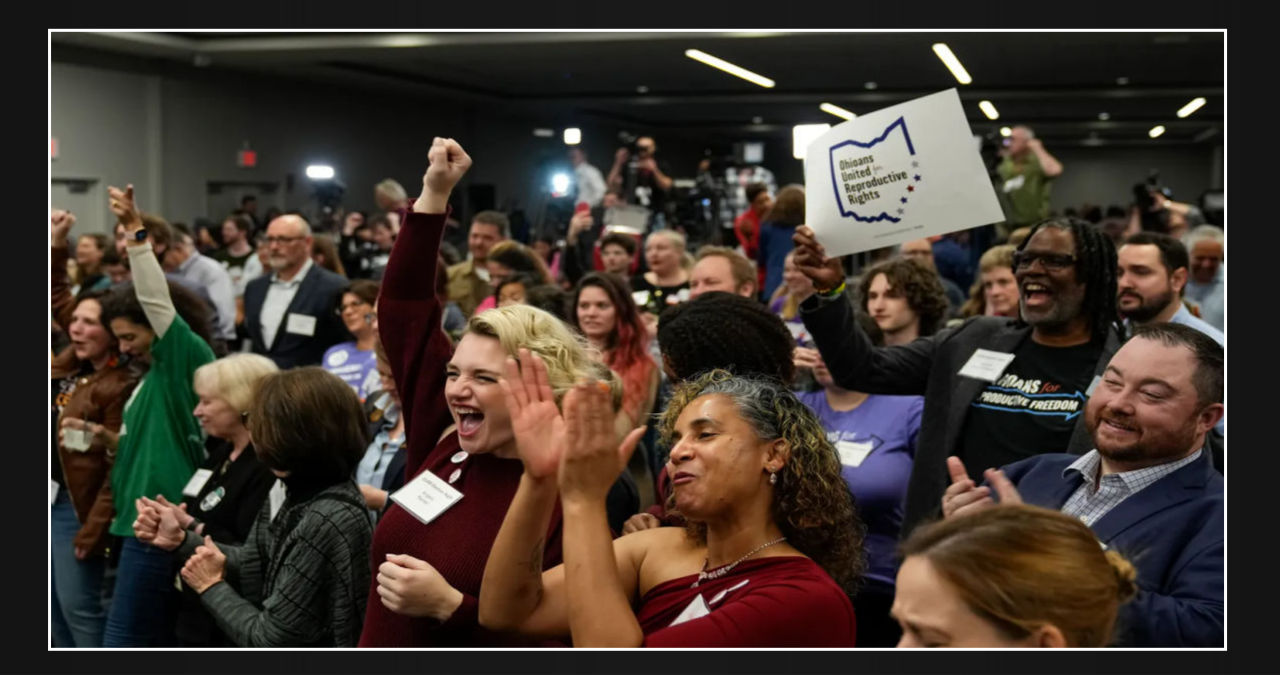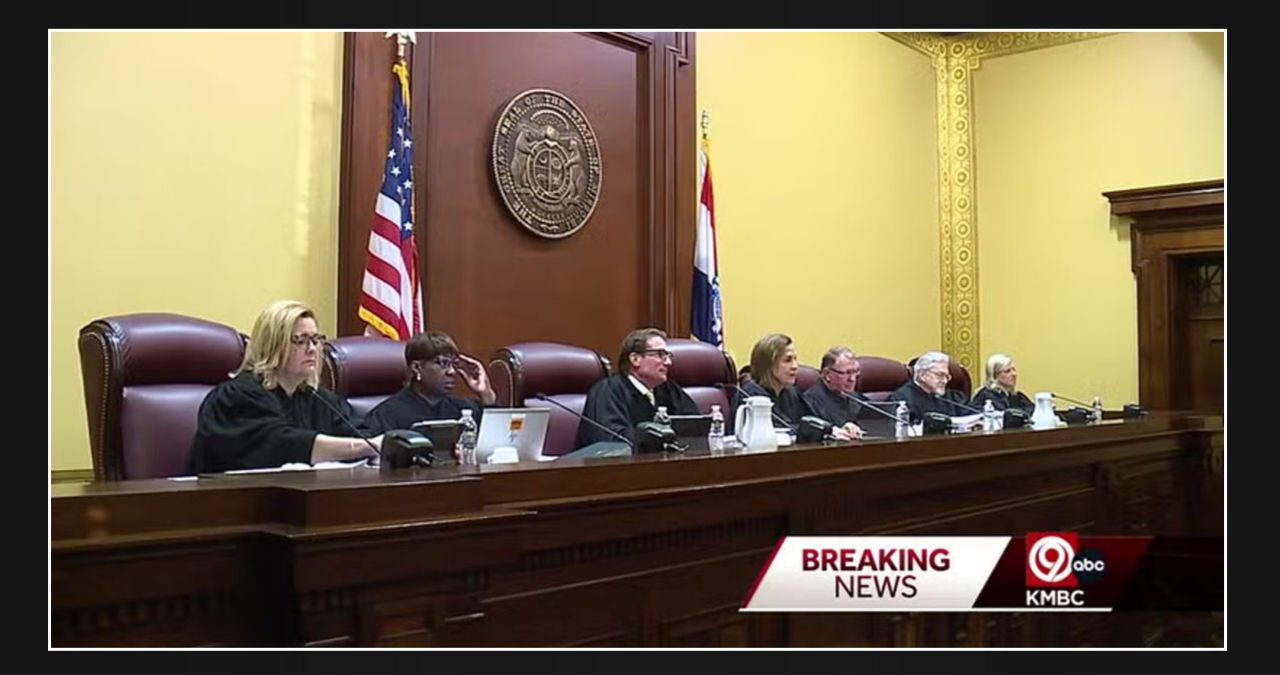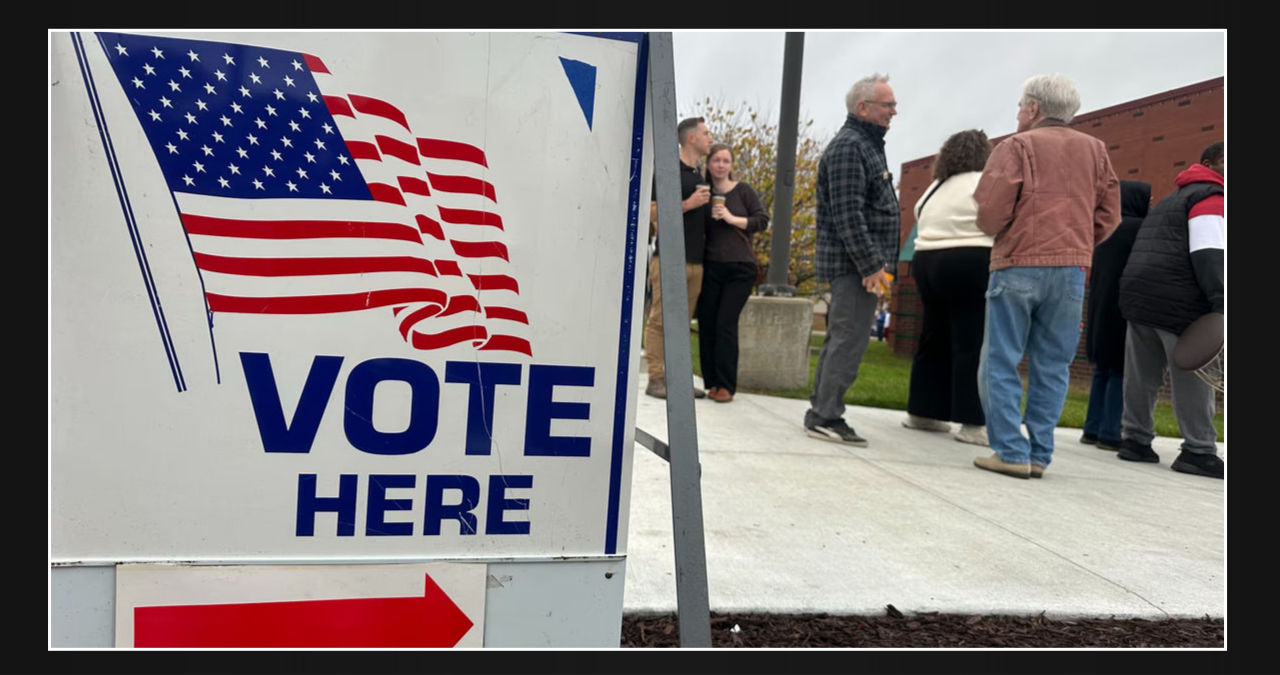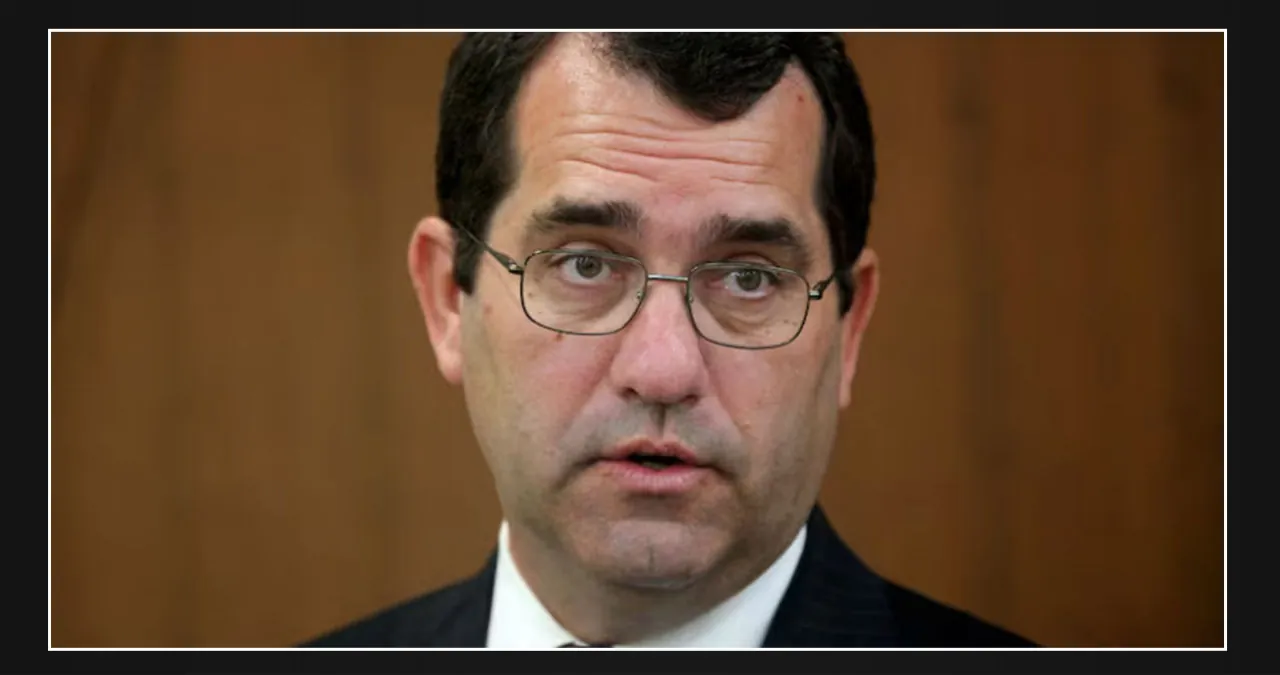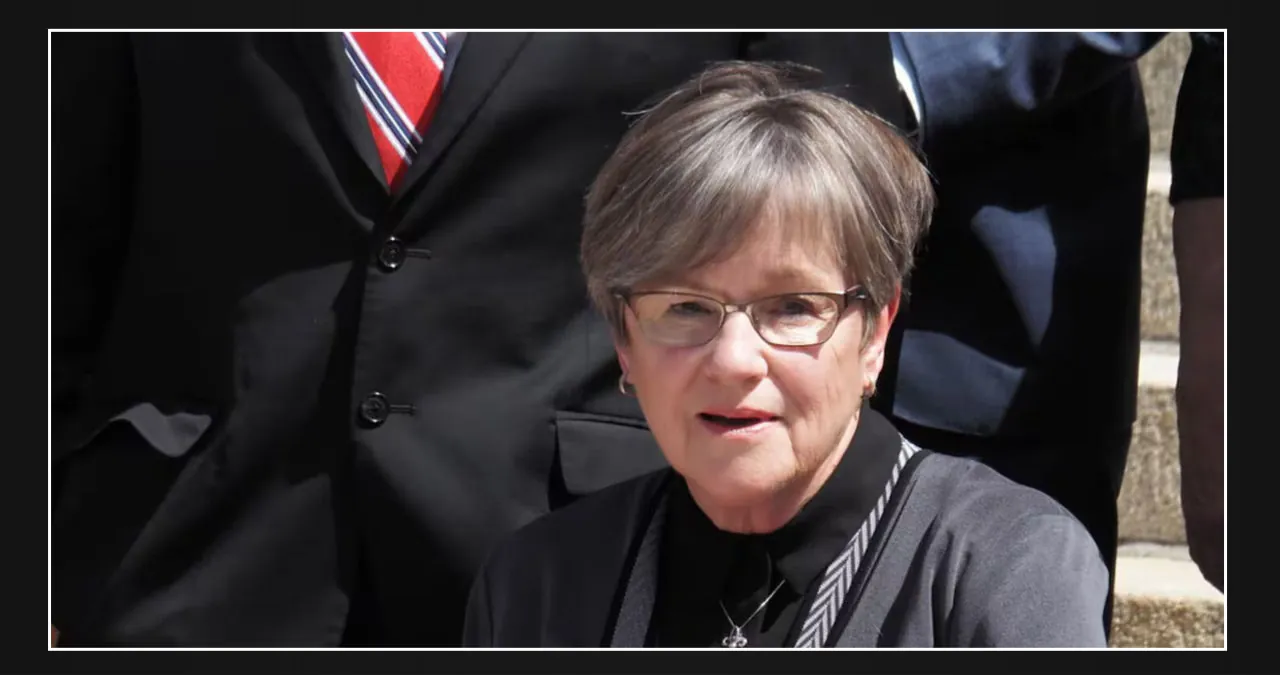Connecticut residents expressed their outrage by presenting a petition to Gov. Ned Lamont on Thursday. The petition, which contained a staggering 68,000 signatures, urged for a solution to the increasing electric bills that have burdened the community.
Monroe resident Scott Pearson took action on July 28 by starting a petition to voice his anger towards the public benefits charge on Eversource bills and to demand its elimination. This charge, which is spread out over a period of 10 months, is intended to cover a deal made with the Millstone nuclear power plant and outstanding bills from customers who were able to avoid disconnection for four years due to the impact of the coronavirus pandemic.
Connecticut residents were left feeling overwhelmed as they faced energy bills that had doubled or even tripled due to PURA’s approval of rate hikes for Eversource and UI customers, according to Pearson.
“I aim to rekindle awareness,” Pearson expressed. “I hope Governor Lamont lays eyes on the 1,500 pages comprising the signatures of individuals across the state. It’s a remarkable total of 68,000 signatories, and while viewing it online may be one experience, witnessing it in print holds a far greater impact.”
“I want him to understand the pain that the middle class and seniors are experiencing,” he emphasized. “They are shouldering the burden of public benefits through the costs imposed on Eversource and United Illuminating customers.”
State Senator Jeff Gordon spoke at a brief event held at the State Capital building on Thursday morning. In his speech, he mentioned that legislators are actively working on up to 17 proposals.
Gordon suggested removing the public benefits charges from the electric bill. According to him, the electric bill should only reflect the amount of electricity consumed, without any additional charges. By eliminating these charges, there would be no need to raise taxes, allowing the continuation of existing programs.
Gordon suggests that one way to address the issue is by limiting long-term power purchase agreements. According to him, these agreements are currently four, five, or even six times more expensive than they should be, making them unaffordable for many people. Additionally, a new law has been passed this year that encourages collaboration with other states in future projects. By working together, Gordon believes that better deals can be negotiated, leading to more cost-effective solutions.
Donnetta Campbell, a business owner in Middlebury, shared her experience with an increase in her Eversource bill. In just two months, her bill went up from $1,129.02 on June 21 to $3,198.00 on August 26. Donnetta resides in a large, old house that is a century old. Upon examining her bill, she discovered an additional charge of $800 for public benefits.
Campbell was shocked when she received her bill, which amounted to $3,200. The impact was so significant that she nearly lost her balance in her chair. Despite enduring the challenges brought about by COVID-19 and layoffs, Campbell managed to persevere. However, the exorbitant bill from Eversource left her feeling that the company needs to be held accountable and regulated more strictly.
Campbell believes in the importance of giving back, but she strongly believes that it should be a personal choice and not tied to your electricity usage.
She mentioned that she is making use of a payment plan to settle the outstanding amount.
Campbell expressed her admiration for Scott’s petition, highlighting its bipartisan nature and its clear explanation of the underlying issues. She emphasized the importance of taking action and commended Scott for his efforts in addressing the problem.
A member of Lamont’s staff graciously accepted the box that contained the extensive 1,500-page petition.
Later that afternoon, at the Hartford Convention Center, Lamont expressed his intentions to carefully review the petition and the names presented.
Lamont emphasized the need for payment for the power being received. He highlighted the public benefit derived from the affordable Millstone carbon-free nuclear power. Lamont argued that shifting the cost from ratepayers to taxpayers would imply that it cannot be obtained for free.
Millstone currently accounts for 77% of the public benefits charge, while the remaining 23% goes towards bipartisan programs and recovering charges from a four-year moratorium. This moratorium prevented utilities from disconnecting customers during the COVID-19 pandemic.
State utility regulators have recently given their approval for a plan that will see Eversource and United Illuminating being reimbursed approximately $3 per month per residential customer, based on their level of usage, through the public benefits charges. This repayment is for the costs incurred by the electric vehicle charger program. The plan went into effect on September 1, 2024, and will continue until April 30, 2025.
In 2017, the state made a deal with Millstone to secure the continued operation of the complex, which was facing financial difficulties at the time. This agreement has proven beneficial as it has ensured a reliable source of electricity in our deregulated electricity system. The costs associated with Millstone make up the largest portion of the fee.
The costs of the Millstone project, which began on July 1st, will persist for 10 months as originally planned. Despite some advocates advocating for the costs to be distributed over 22 months to prevent a sudden increase in rates, this proposal was rejected by a 2-1 vote from state utility regulators.
According to Lamont, removing the public benefits charge doesn’t simply eliminate it, but rather shifts the burden to others. He expresses his concern about this approach, stating that everyone else will have to bear the cost. However, he remains open to discussing the matter in the next session if someone presents constructive solutions rather than pursuing political gains.
Connecticut Governor Ned Lamont responded to Republicans’ request for a special session to discuss reallocating funds from the American Rescue Plan Act or other parts of the budget. Lamont emphasized that taking from the budget would ultimately burden taxpayers. He stated, “I don’t want taxpayers to foot the bill for electricity. Instead, I am focused on increasing the supply of electricity to lower rates. I am actively negotiating with natural gas, nuclear power, wind power, and solar energy to achieve this goal. My priority is to bring down electricity prices for the benefit of the people.”
Lamont emphasized that every penny from ARPA has already been allocated. To address this, he proposes a two-fold approach of boosting demand and expanding supply.
Lamont acknowledges the concerns of the 68,000 people who signed the petition.
“I want to convey to those individuals that our electric prices are exceedingly high, and I am fully aware of the impact this has on families with limited incomes. Rest assured, I am wholeheartedly committed to reducing these electric prices. I understand the burden it places on consumers who struggle to pay their bills, as well as the hindrance it poses to attracting new businesses to our state.”
Thursday is a significant day for Pearson as it signifies the culmination of his mission. His primary goal is to shed light on the predicament faced by senior citizens who grapple with the decision of using air conditioning on sweltering 90-degree days, all the while worrying about the financial burden. Pearson has received numerous heart-wrenching emails from petition signatories, with many expressing their need to relocate due to the exorbitant costs of living in the state.
Pearson emphasized that his perspective on the matter is not driven by political motivations. He firmly believes that assigning blame is not the solution. Recognizing the abundance of intelligent individuals in Hartford, he remains optimistic that they can collectively devise a more effective alternative.

